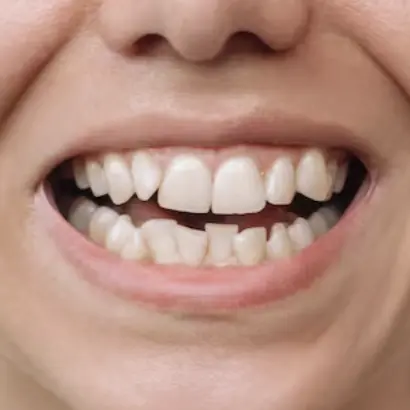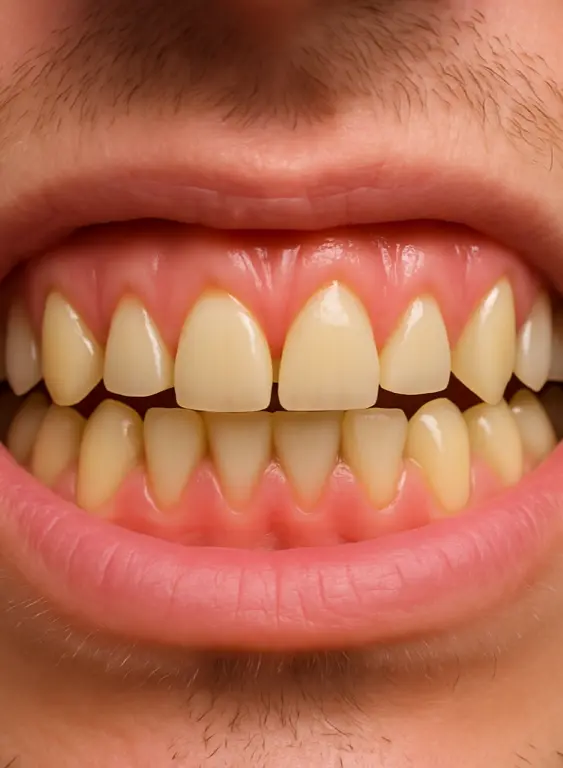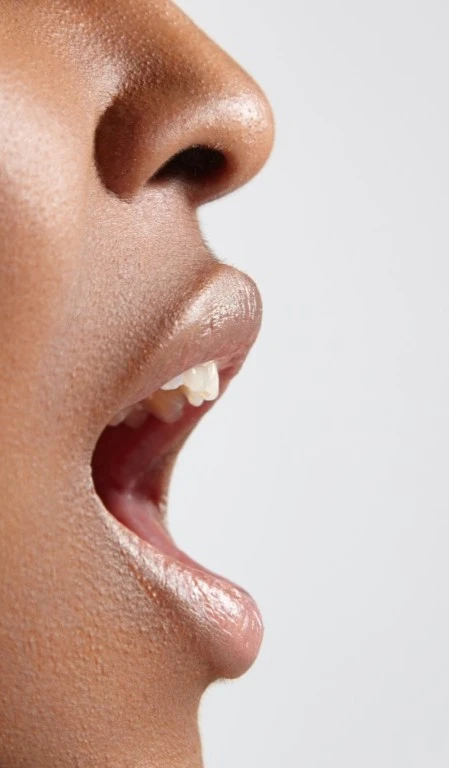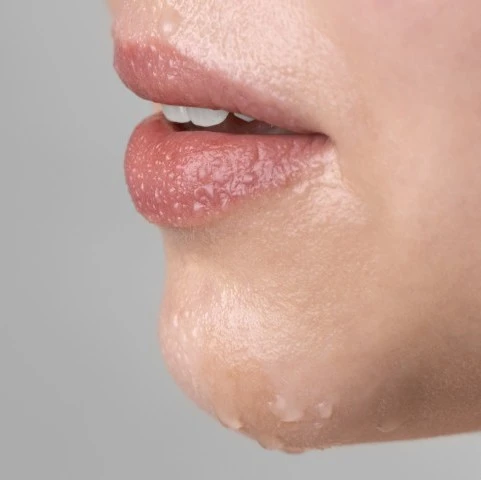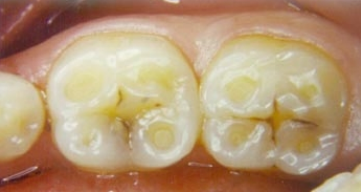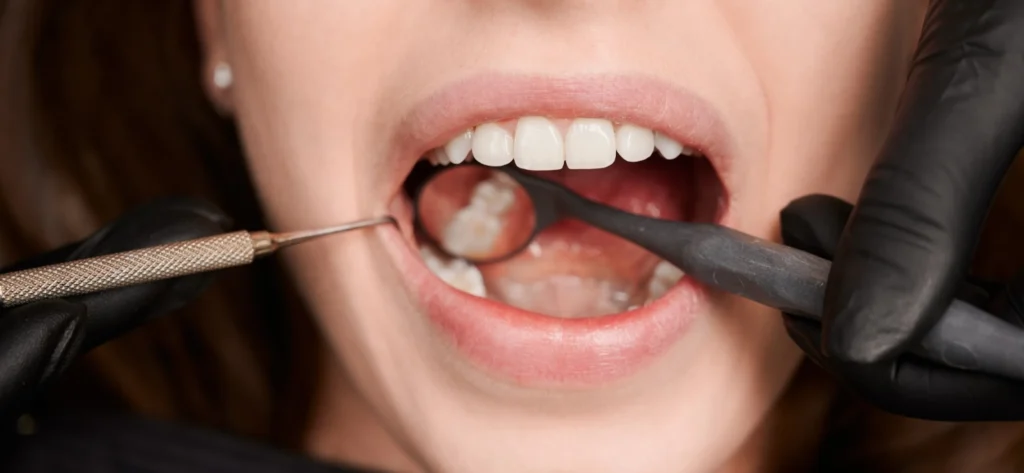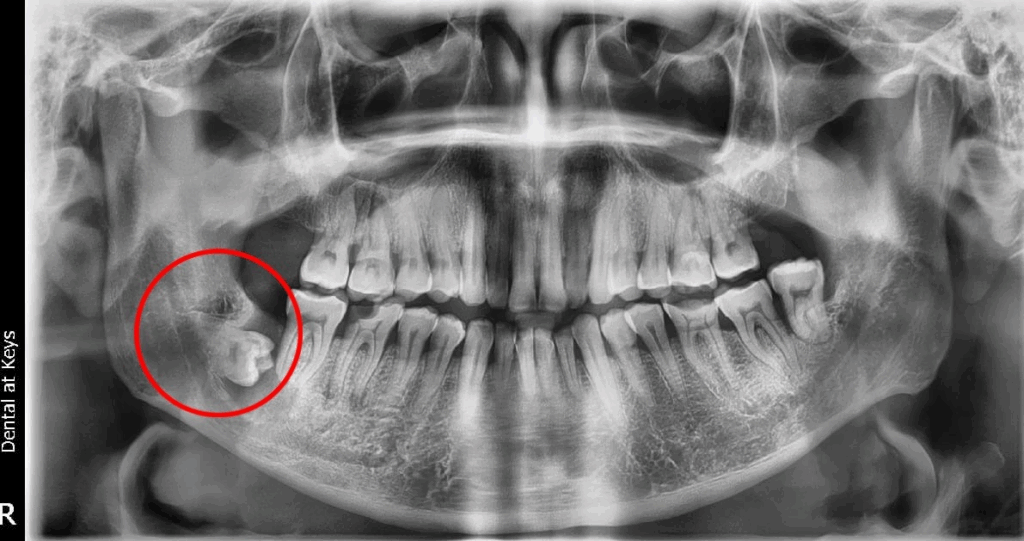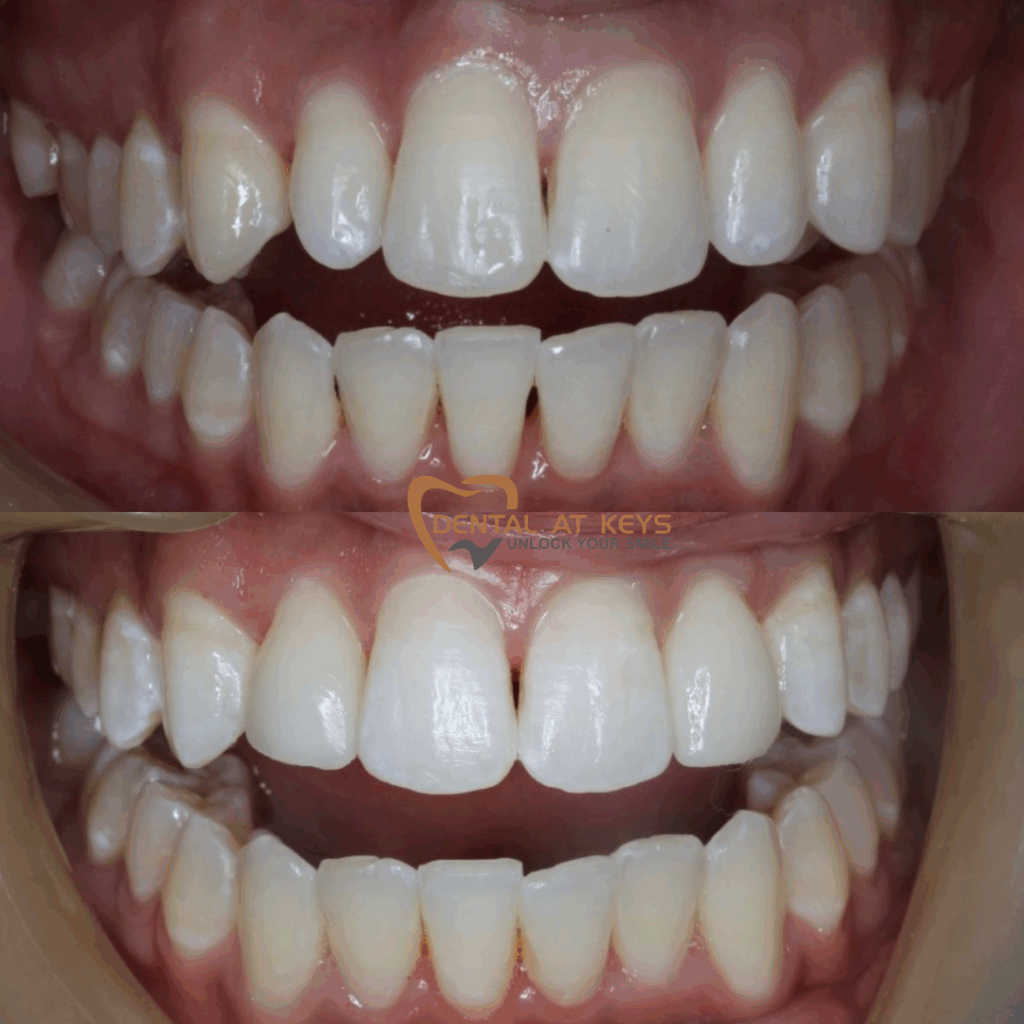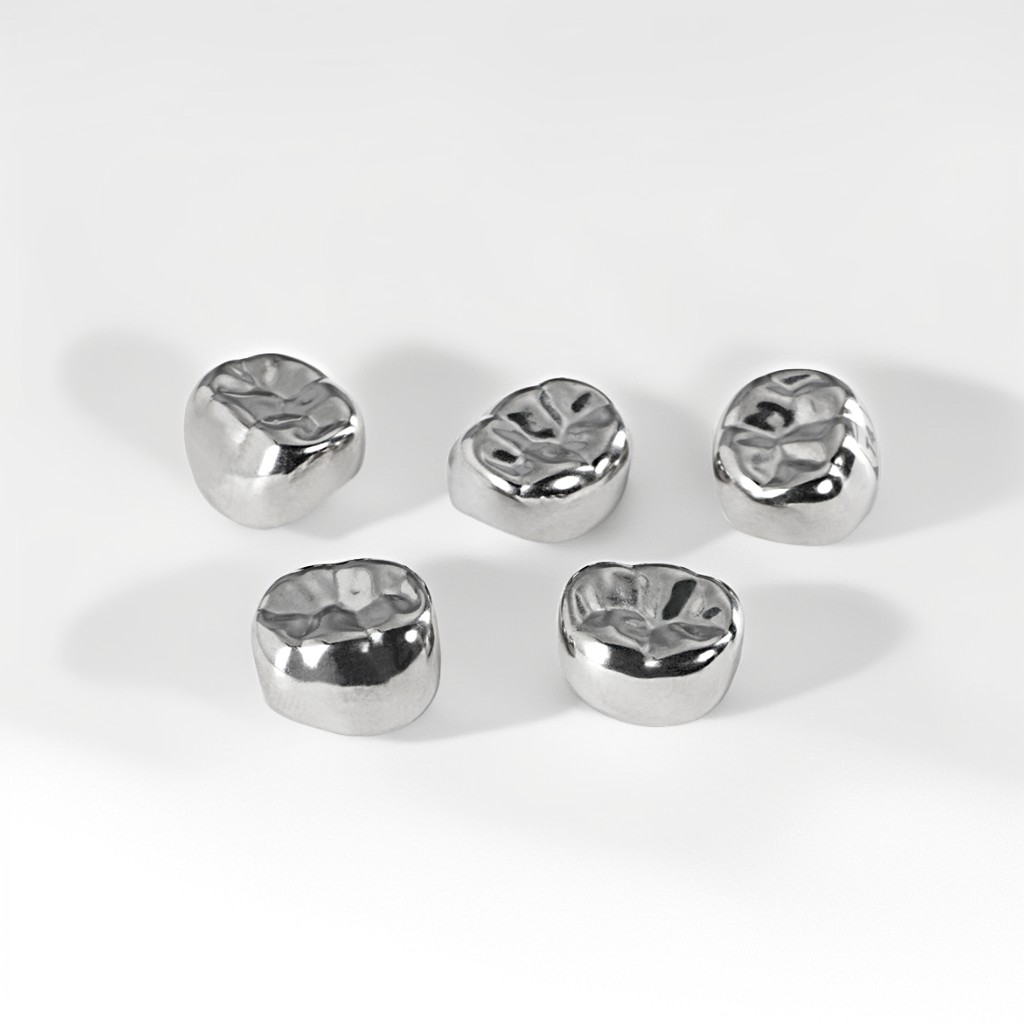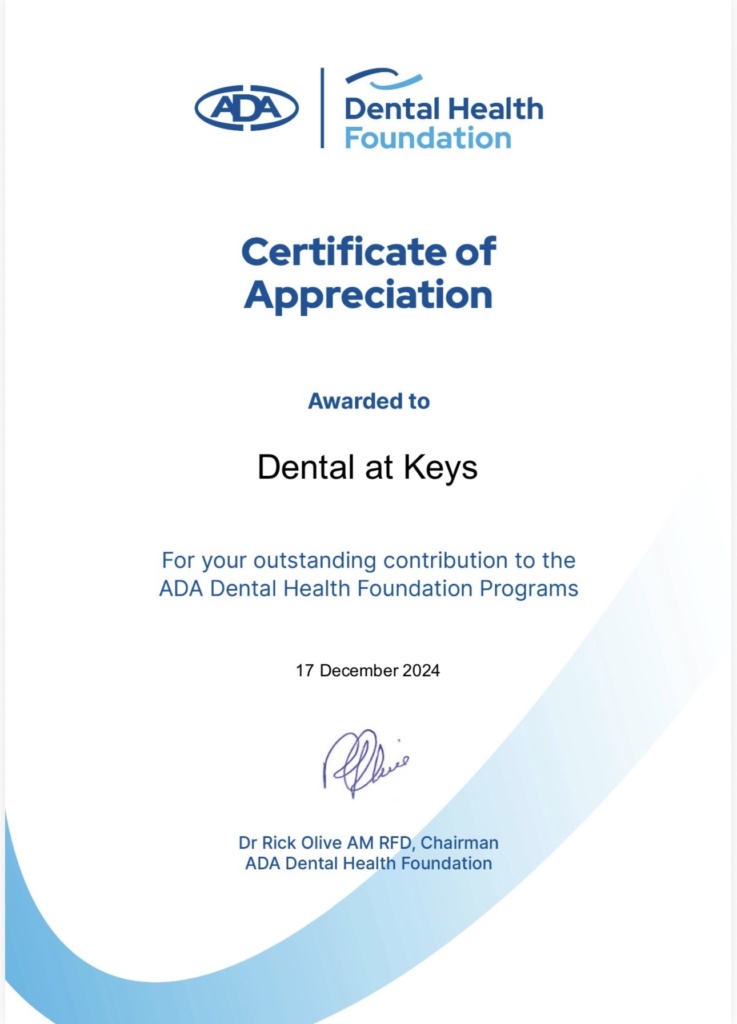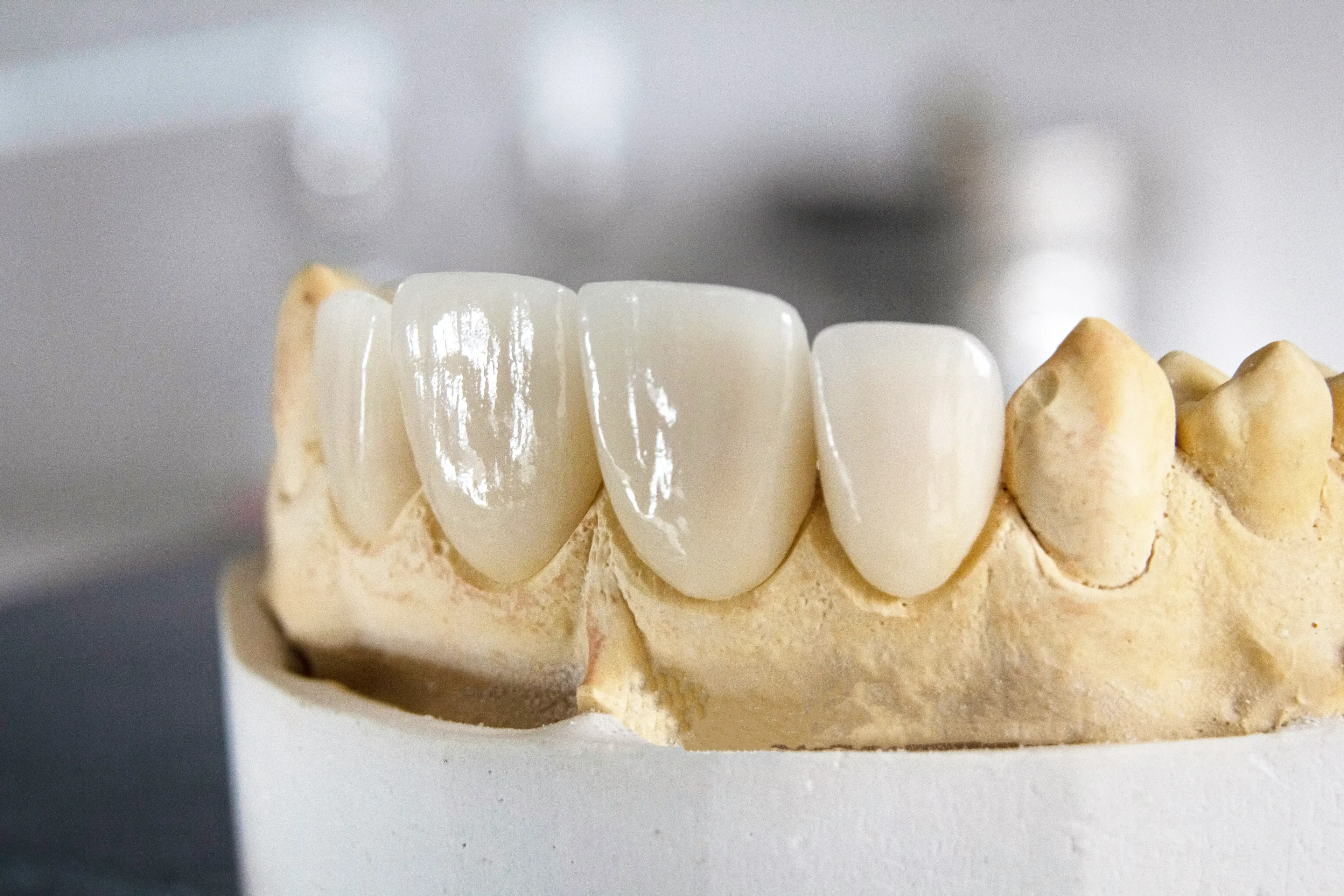
What is a Dental Crown?
A dental crown is a “tooth cap” that is placed over a damaged, decayed, or weakened tooth to restore its shape, size, strength, and appearance. Crowns are custom-made to fit over the affected tooth and can be made from a variety of materials, including porcelain, ceramic, metal, or a combination of these materials. They protect and restore the tooth’s functionality.
We also offer Full arch reconstruction or full mouth rehabilitation which are the use of multiple crowns (and bridges) to restore your worn & missing teeth back to what they should be like!
Signs you might need a tooth cap
Crowns are an excellent solution for teeth that are weak and require some sort of strengthening or improved aesthetics. They are usually recommended when one of the following happens:
- Fractured or cracked teeth
- Loss of tooth structure due to tooth decay
- Heavily filled (large tooth filling) and hence weak underlying tooth structure
- Aesthetic concerns (such as discolouration)
- The tooth has had a root canal (and is hence extremely weak)
- Restoration of a dental implant (tooth on an implant)
What type of materials do you use for a dental crown?
Dental Caps can be made out of the following materials:
- Monolithic Zirconia (Ceramic) – Zirconia has excellent compressive strength and wear ratings.
- Lithium Disilicate (Ceramic) – This ceramic material (also known as E.max) is extremely popular due to it’s aesthetics and ability to be bonded onto teeth.
- Porcelain fused to Metal (PFM) – The traditional way to make crowns and bridges, with excellent long-term studies to prove its reliability.
- Porcelain fused to Zirconia (PFZ) – A fusion of the traditional way to bond porcelain using a new-age ceramic as the strong base.
- Gold and metal alloys – All metals have excellent compressive strength and wear ratings. These are the material of choice in heavy teeth grinders.
- Stainless Steel Crowns – These pre-formed crowns are primarily used in children, allowing us to effectively restore large teeth decay and teeth with pulpotomies.

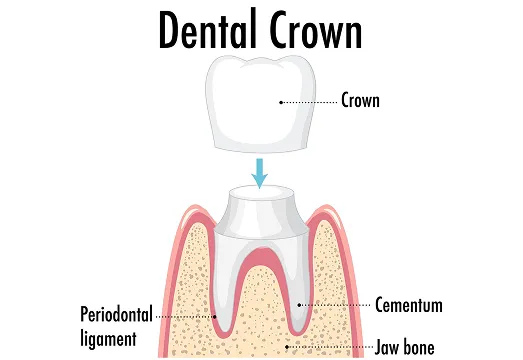
Teeth Crowning procedure
The steps for a successful dental crown are as follows:
- A full comprehensive oral examination is performed and all your teeth are checked for problems.
- All teeth problems such as cavities, infections and gum disease are all fixed prior to the crowning process.
Dental Crown on Teeth
- The tooth is prepared (adjusted) and moulds or 3D scans are taken and sent to our local dental lab.
- Your new custom tooth cap is either milled or constructed and sent back to us in roughly two weeks.
- Your new dental crown is bonded onto your teeth.
Dental Crown on Implant
- The implant connection is exposed and 3D scans or impressions are taken and sent to our local dental lab.
- Your new custom implant crown is either milled or constructed (or both!) and sent back to us in roughly three weeks.
- Your new implant crown is screwed onto your implants.
Stainless Steel Crown on Children
- Hall Crown technique: We place separators are between teeth and a few days later, a pre-formed crown is cemented over the top of the tooth.
- Sealing Pulpotomies: The tooth is prepared just like an adult tooth and a pre-formed crown is cemented over the top of the tooth.
Possible Complications with Dental Crowns
While dental crowns are a reliable and effective way to restore damaged teeth, some patients may experience complications following treatment. One common issue is tooth sensitivity, which can occur as the tooth adjusts to the new crown. In about 10-20% of crown and bridge cases, nerve damage may develop over time, sometimes leading to the need for a root canal treatment. This is often because teeth requiring crowns are already weakened by decay, fractures, or extensive damage before restoration.
Other potential problems include porcelain chipping or fracture. When this happens, the damaged crown usually cannot be repaired and will need to be replaced to restore full function and aesthetics. It’s important to remember that even crowned teeth are still susceptible to decay, so regular dental check-ups and professional cleanings are essential to maintain your oral health.
Patients who grind or clench their teeth (bruxism) should wear a night splint to protect their crowns from excessive wear and damage. Like all dental restorations, crowns have a limited lifespan and may eventually need to be replaced to ensure continued comfort and performance.
There are many different types of Crowns and our team will help you figure out which one is best for your oral health.
Common Dental Problems
Frequently Asked Questions

How much does a Crown cost?
The cost of crowning your tooth depends on the material used. The typical cost of a crown can range from a few hundred dollars for a temporary acrylic crown to over $2,000 for a ceramic crown
How long do tooth Crowns last?
Crowns can last around 7–15 years according to studies however there are many variables including oral hygiene and grinding.
How do I clean my new Crown?
Just like uncrowned teeth, you can get decay around the tooth that is crowned. Optimum oral hygiene must be maintained with brushing and cleaning between with floss or interdental brushes.







